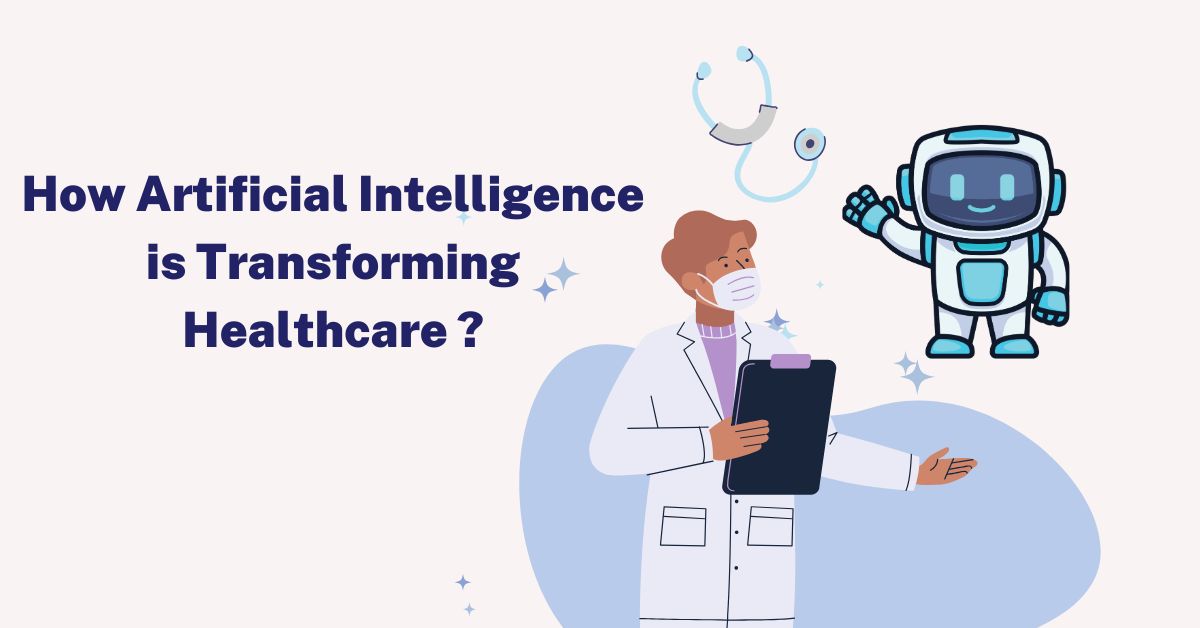How Artificial Intelligence is Transforming Healthcare
The integration of artificial intelligence (AI) into healthcare is no longer a futuristic concept but a present reality that is progressively reshaping the medical landscape. With its capacity to analyze massive datasets, predict outcomes, and aid in making informed decisions, AI is increasingly becoming a pivotal force in enhancing healthcare delivery. This blog post delves into the multifaceted role of AI in healthcare, exploring its current applications, benefits, challenges, and future potential.
Understanding AI in Healthcare
At its core, artificial intelligence refers to the simulation of human intelligence in machines programmed to perform tasks typically requiring human cognition. Key subsets of AI include machine learning, where algorithms improve through experience, and deep learning, which involves neural networks capable of learning unsupervised from unstructured data.
Current State of AI in Healthcare
AI is currently revolutionizing healthcare with applications that were once limited to the realm of science fiction. From AI assistants aiding physicians in diagnosing diseases to virtual nurses providing round-the-clock patient monitoring, AI technologies have found footholds across the healthcare sector. For instance, IBM’s Watson Health and Google DeepMind’s healthcare initiatives demonstrate practical AI utilization in managing and analyzing clinical data, offering insights that enhance patient care.
Major Applications of AI in Healthcare
Diagnostic and Predictive Analytics
AI has significantly bolstered diagnostic and predictive analytics capabilities within healthcare. Algorithms can sift through extensive datasets to recognize patterns that may be overlooked by the human eye, thus improving diagnostic accuracy. AI tools deployed in radiology, for instance, can analyze imaging faster and with comparable or superior precision than human radiologists, thereby aiding in quicker diagnosis. Besides diagnosis, AI-powered predictive analytics foresee health trends, enabling interventions before conditions become severe.
Personalized Medicine
The advent of personalized medicine has been accelerated by AI’s transformative capabilities. By analyzing genetic, environmental, and lifestyle factors of individual patients, AI systems assist healthcare professionals in crafting customized treatment plans. This individualized approach not only increases treatment efficacy but also minimizes adverse effects, as decisions are tailored to a patient’s unique profile. AI’s role in genomic sequencing further cements its potential to revolutionize personalized healthcare.
Robotics in Surgery
AI-powered robotics in surgery exemplify technological advancements facilitating minimally invasive procedures with increased precision. Robotic systems such as the da Vinci Surgical System leverage AI to enhance a surgeon’s ability to perform complex tasks with superior dexterity and precision. These systems translate the surgeon’s hand movements into smaller, precise motions of tiny instruments inside the patient’s body, reducing the likelihood of human error and improving patient outcomes.
Administrative Applications
AI is also streamlining administrative tasks within healthcare, an area notorious for inefficiencies and human error. From managing patient records and scheduling to optimizing supply chains and billing processes, AI applications achieve higher accuracy and efficiency. Virtual assistants and chatbots further ease administrative burdens by handling routine queries and tasks, freeing up medical staff to focus on patient care.
Benefits of AI in Healthcare
Improved Patient Outcomes
AI’s impact on patient care is transformative, improving outcomes through enhanced diagnostic accuracy and personalized treatment plans. AI’s predictive analytics facilitate preventive care, reducing the incidence of diseases and improving post-treatment recovery rates. Consequently, AI contributes significantly to a more proactive model of healthcare, centered on wellness and prevention.
Cost Efficiency
By automating routine tasks and optimizing resource allocation, AI helps reduce operational costs in healthcare facilities. AI-driven predictive maintenance of medical equipment can prevent costly breakdowns, and AI’s ability to streamline administrative processes reduces labor costs. These efficiencies translate to lower healthcare costs for both providers and patients.
Enhanced Accuracy
AI algorithms are unburdened by human errors, thereby significantly enhancing data accuracy. They can handle large volumes of data at great speed, identify anomalies, and learn from vast datasets, improving reliability in medical diagnostics and administration. Enhanced data accuracy fulfills an essential prerequisite for better patient care and operational efficiency.
Challenges and Ethical Considerations
Data Privacy Concerns
As AI systems require access to vast volumes of data, patient privacy remains a paramount concern. Safeguarding sensitive information necessitates stringent data protection measures and compliance with regulations like the Health Insurance Portability and Accountability Act (HIPAA). Ensuring AI systems are equipped with robust security protocols is vital to maintaining patient trust and confidentiality.
Bias and Fairness
One significant challenge in AI healthcare applications is mitigating algorithmic bias. AI systems trained on biased datasets may perpetuate existing disparities in healthcare delivery, affecting marginalized groups disproportionately. Continuous scrutiny and refinement of algorithms are necessary to ensure fairness and equitable treatment across diverse patient populations.
Regulatory Hurdles
The introduction of AI into healthcare raises numerous regulatory hurdles. Compliance with evolving regulations requires ongoing collaboration between AI developers, healthcare providers, and regulatory authorities. Establishing comprehensive guidelines for AI deployment in healthcare ensures these technologies enhance rather than compromise medical practices.
Future of AI in Healthcare
Innovations on the Horizon
Emerging AI technologies promise further advancements in healthcare. The potential integration of augmented reality in surgical procedures, AI-driven drug discovery, and advanced telemedicine platforms could redefine modern medical practice. As these technologies mature, they offer the prospect of improved outcomes through greater diagnostic accuracy and personalized treatment options.
Potential Impact on Global Healthcare
The global impact of AI in healthcare extends beyond developed nations, offering solutions to healthcare challenges faced by resource-limited regions. AI can facilitate remote diagnosis and treatment, democratizing access to healthcare services worldwide. By bridging gaps in access to healthcare, AI holds the potential to transform global health systems, achieving equitable healthcare for all.
In conclusion, artificial intelligence is not merely a tool but a catalyst for change, reshaping healthcare in profound ways. While challenges and ethical considerations remain, the potential benefits of AI—improved patient outcomes, cost efficiency, and enhanced accuracy—far outweigh the risks. As AI technologies continue to evolve, their integration into healthcare systems worldwide offers a pathway to more efficient, equitable, and patient-centered care.
Are you excited about the transformative role of AI in healthcare? Share your thoughts in the comments below or explore further readings on this subject to stay informed about the latest advancements in this exciting field!

Explore related articles on AI in healthcare
Learn more from credible sources







